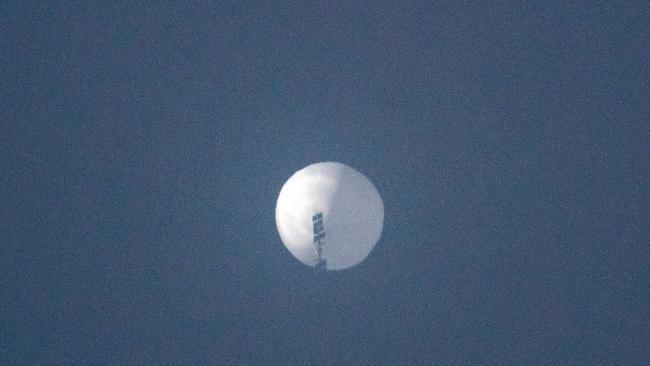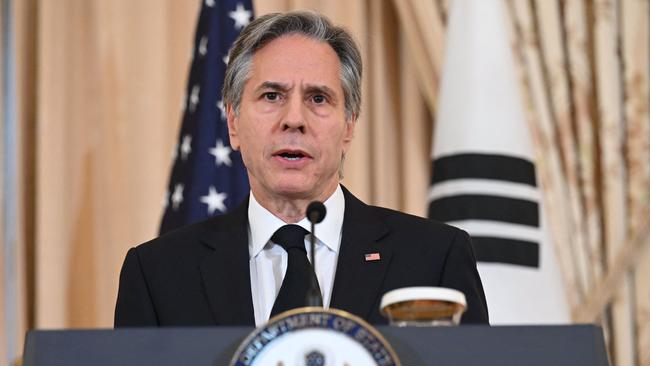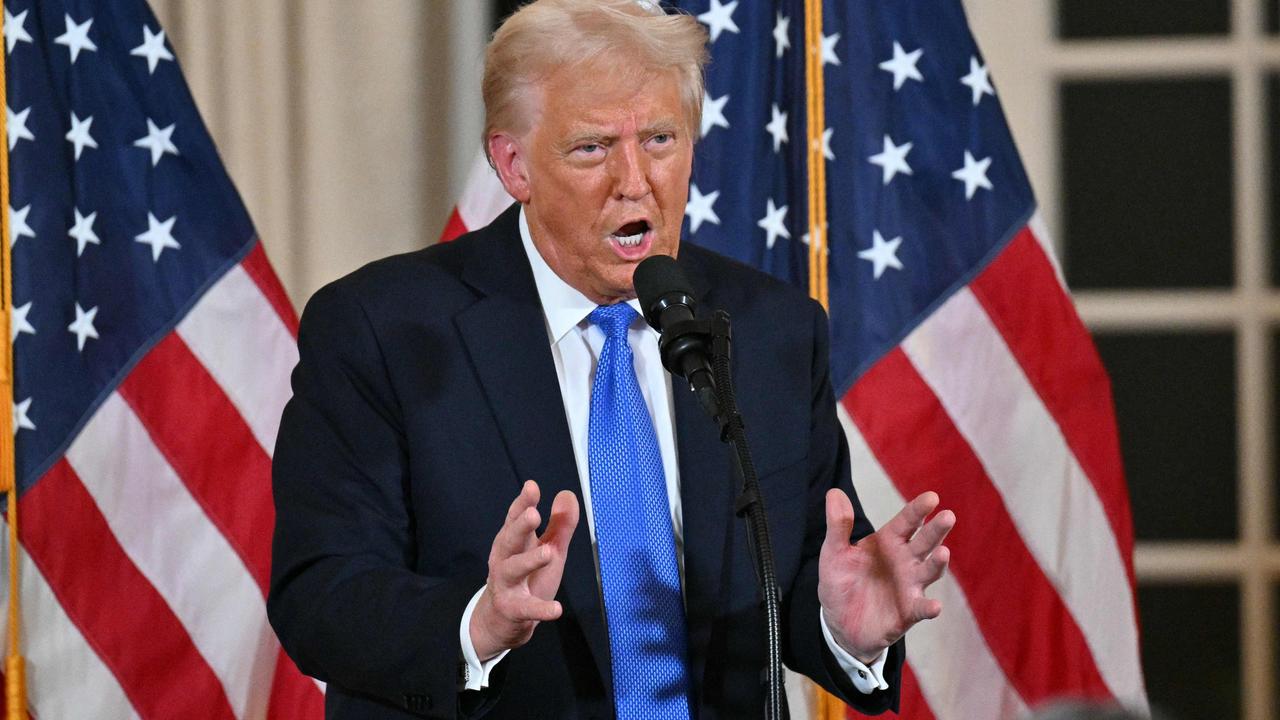Blinken trip to China postponed after suspected spy balloon spotted over US
The Biden administration has put off Secretary of State Antony Blinken’s trip to Beijing, determining that US sovereignty was violated by a Chinese reconnaissance balloon.

The Biden administration said that a suspected Chinese reconnaissance balloon drifting over the continental U.S. violated American sovereignty, and indefinitely postponed a scheduled visit to Beijing by Secretary of State Antony Blinken aimed at easing the acrimony in the nations’ relationship.
Officials pulled the plug on the trip hours before Mr. Blinken was set to depart, underscoring the enormous challenges of finding areas of constructive cooperation, even as both capitals reiterated on Friday their commitment to reviving talks at a later date.
The Chinese Foreign Ministry denied Friday that the craft was for spying, saying it was a civilian balloon designed primarily for meteorological study that had blown off course. “China will continue to maintain communication with the U.S. to properly handle the unexpected situation, ” the ministry said in a brief statement.
But the U.S. said it was certain of its assessment of the balloon’s intended purpose, and that conditions therefore didn’t allow for constructive dialogue.
The Biden administration has made competition with China a central tenet of its broader national-security strategy. In doing so, it is bearing down on a range of contentious issues, from Taiwan to technology, while expanding its own military presence in the Asia-Pacific to counter Beijing’s rising influence.
U.S. officials said on Friday they would continue to explore areas of cooperation based on U.S. interests, adding that complexities in the relationship existed even before this latest incident.

The Pentagon said Friday that the balloon had changed course, was flying east at 60,000 feet over the central U.S. and posed no threat to commercial aviation or to people on the ground. Officials declined to specify its location, but Kansas Sen. Roger Marshall wrote on Twitter that the balloon had been detected over northeastern Kansas. The night before, U.S. officials said the balloon was loitering over Montana, having earlier crossed Alaska’s Aleutian Islands and Canada.
The Pentagon scrambled F-22 jet fighters and at one point considered shooting down the balloon, which one U.S. official described as roughly the size of three school buses, but didn’t over concerns that the debris would pose a risk to people on the ground.
Defense Department spokesman Brig. Gen. Pat Ryder said that the balloon bore a payload of surveillance equipment and was expected to drift over the U.S. for a few more days. The Pentagon said it was still reviewing options and wouldn’t say whether it would shoot the balloon down before it leaves U.S. airspace.
White House press secretary Karine Jean-Pierre said Friday that President Biden had first been briefed on the presence of the balloon on Tuesday and had asked the military to present options. All options, she added, remained on the table.
Mr. Biden agreed with the decision to postpone Mr. Blinken’s trip to China, she added, calling it a consensus.
While Mr. Blinken’s trip was never formally announced, a senior administration official said that the secretary of state had been scheduled to depart Friday night for Beijing. The State Department said that while it acknowledged China’s statement of regret, it remained confident of its assessment of the situation.
“The presence of this balloon in our airspace is a clear violation of our sovereignty as well as international law and it is unacceptable that this has occurred,” the senior administration official said. “We have concluded that the conditions are not right at this moment for Secretary Blinken to travel to China.” The official reiterated that the trip was merely postponed and said that Mr. Blinken planned to travel at the earliest appropriate opportunity. He informed his Chinese counterpart early Friday that he wouldn’t be coming.
“We believe in diplomacy to responsibly manage the most complex bilateral relationship we have,” the senior administration official said. “We are committed to maintaining open lines with the PRC at all times, including during this incident.” Mr. Blinken’s trip had been agreed upon weeks ago by Mr. Biden and Chinese leader Xi Jinping as part of an effort to reset relations strained by the countries’ geopolitical rivalry and exacerbated by the Covid-19 pandemic. Should the trip eventually go ahead, Mr. Blinken would be the highest-level U.S. official to go to Beijing in more than four years.
The presence of the Chinese balloon, however, is likely to complicate efforts by both the Biden administration and the Chinese government to try to find areas of common ground and put what U.S. officials describe as guardrails on the careening relationship.
The officials were confident the balloon had been launched by China and said it was spotted Wednesday by civilians aboard a commercial airliner.
Meanwhile, Canada’s armed forces said late Thursday that they were monitoring “a potential second incident.” Officials didn’t offer further clarification, but Mr. Ryder of the Pentagon said Friday, “We are tracking one balloon.” The U.S. maintains an arsenal of 150 nuclear-armed Minuteman III intercontinental ballistic missiles at Malmstrom Air Force Base in Montana. A senior defense official said that the U.S. government had taken steps to shield sensitive sites, but added that the reconnaissance systems on the balloon were presumed to have “limited additive value” beyond what the Chinese could gather from their low-earth-orbit satellites.
Veteran diplomats differed on the wisdom of postponing the trip. “Excellent -- Team Biden demonstrates a learning curve,” said David Stilwell, a former assistant secretary of state for the Asia-Pacific region in the Trump administration and a retired Air Force general. “Anyone who’s dealt with the PRC knows you have to demonstrate a willingness to walk away to show you’re serious.” Daniel Russel, another former assistant secretary of state for the Asia-Pacific region, during the Obama administration, said Mr. Blinken should have salvaged the trip since “we have heard from the Pentagon that similar incidents have happened in the past, there was not a military threat, a threat to civil aviation, or a significant intelligence risk.” “The United States has far bigger problems to confront with the Chinese than a surveillance balloon, and this represents a setback in the effort to put a floor under the relationship,” Mr. Russel said.
Reaction on Capitol Hill was similarly mixed, though many Republicans criticized the Biden administration for allowing the balloon to float into U.S. airspace in the first place.
“The Biden administration’s unwillingness to protect the sovereignty of our air space and clearly identified sensitive sites is astonishing,” Rep. Rob Wittman (R., Va.), the chairman of the House Armed Services subcommittee that oversees Air Force acquisition programs, said in a statement. “The CCP has proven time and again to be an untrustworthy and unreliable negotiator -- we are demonstrating weakness to our most aggressive adversary and inviting the Chinese Communist Party to flagrantly compromise our domestic security.” Sen. Bill Hagerty (R., Tenn.), who served as ambassador to Japan under President Trump, said the administration was right to postpone the trip.
“Until CCP proves it’s ready to talk seriously about U.S. nat’l security & econ concerns, we shouldn’t chase the meeting,” he wrote on Twitter. “Don’t fall thru CCP trapdoor in desire to create floor in U.S.-China relationship.”
The Wall Street Journal


